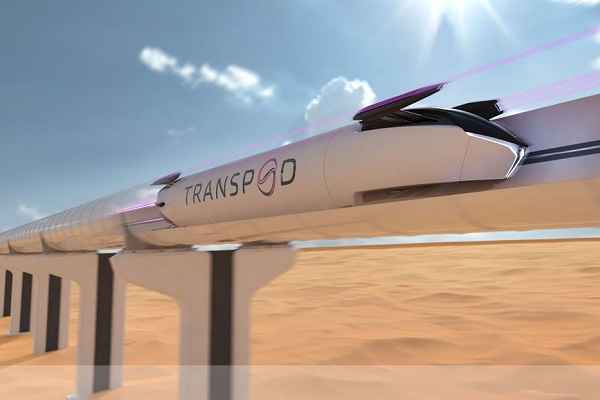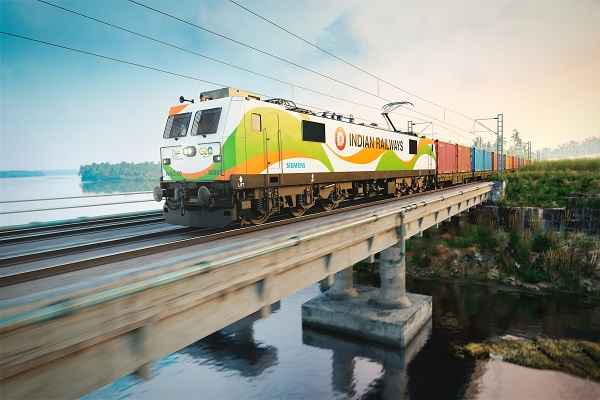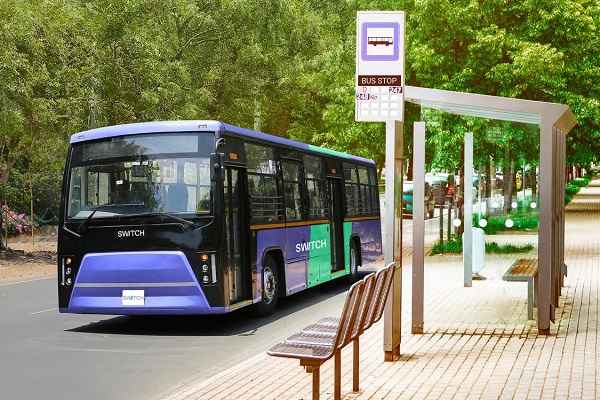 Understanding the Critical Role of Systems Approach in Urban Railway Projects
Understanding the Critical Role of Systems Approach in Urban Railway Projects Exclusive Interview with Ms. Serda Urganciyan, Partner-CEO at Studio 88 Architecture
Exclusive Interview with Ms. Serda Urganciyan, Partner-CEO at Studio 88 Architecture Titagarh Rail Systems set to deliver first sleeper Vande Bharat Train by late 2025
Titagarh Rail Systems set to deliver first sleeper Vande Bharat Train by late 2025 UAE's First Vertiport gets Operational approval, A game-changer in Autonomous Transportation
UAE's First Vertiport gets Operational approval, A game-changer in Autonomous Transportation Nafisah Aslam-Zainudeen: Inspiring the Next Generation of Female Engineers
Nafisah Aslam-Zainudeen: Inspiring the Next Generation of Female Engineers DRA-DMRC JV awarded major contract for redevelopment of Ahmedabad Railway Station
DRA-DMRC JV awarded major contract for redevelopment of Ahmedabad Railway Station Revolutionizing Transportation: Hyperloop Technology in Saudi Arabia
Revolutionizing Transportation: Hyperloop Technology in Saudi Arabia India is not just a market, it is becoming a beacon of hope for the future: Siemens AG
India is not just a market, it is becoming a beacon of hope for the future: Siemens AGSATEBA acquires Rail Business of De Bonte Group in Belgium
 Regent to launch High-Speed Seagliders to transform coastal transportation in UAE
Regent to launch High-Speed Seagliders to transform coastal transportation in UAE
Delhi Govt approves Transport Aggregator Scheme

New Delhi, India (Urban Transport News): Delhi's ongoing battle against air pollution has taken a significant step forward with Chief Minister Arvind Kejriwal's recent green initiative. Kejriwal has given the green light to the revolutionary Delhi Motor Vehicle Aggregator and Delivery Service Provider Scheme 2023, aimed at regulating and licensing aggregators in the passenger transport and delivery service sectors within the national capital. This landmark scheme, while advocating the adoption of electric two-wheelers and ushering in bike taxis, sets strict targets for the transition to electric vehicles (EVs) in the city's commercial vehicle fleets. With a strong emphasis on environmental sustainability and improved urban mobility, this move is a testament to the Delhi government's commitment to a greener future.
With this groundbreaking step, Delhi has positioned itself as a trailblazer, not only within India but also globally, in enforcing a definitive transition timeline for commercial vehicle fleets, delivery service providers, and e-commerce entities to embrace zero-emission electric vehicles. In his official statement, Kejriwal remarked, "Today, I have given my approval to the historic Delhi Motor Vehicle Aggregator and Delivery Service Provider Scheme. It marks a significant milestone in Delhi's fight against pollution."
The key highlight of this comprehensive scheme is its ambitious EV adoption targets for different vehicle categories. Notably, it mandates a hundred percent transition to electric two-wheelers for aggregators, with similar targets set for three-wheelers and four-wheelers over varying timelines. For delivery service providers, the scheme outlines specific targets for the adoption of EVs, ensuring a significant reduction in emissions and a gradual shift to eco-friendly transportation solutions by 2030.
Transport Minister Kailash Gahlot hailed this move as a pioneering initiative in India, emphasizing the pivotal role this scheme will play in fostering a paradigm shift in transportation services in Delhi. "By laying down clear guidelines for the transition to electric vehicles and setting high standards for service quality and public safety, this scheme is poised to usher in a new era of transportation services in Delhi," stated Gahlot.
The scheme also focuses on ensuring top-notch service quality and enhancing public safety by implementing stringent guidelines for vehicle cleanliness, driver conduct, and prompt resolution of customer complaints. Notably, the regulations stipulate the application of the scheme to aggregators, delivery service providers, or e-commerce entities operating within Delhi, thus ensuring comprehensive coverage of the city's transport network.
Furthermore, the scheme introduces a licensing system that necessitates all existing and new operators to obtain a license within 90 days of the scheme's notification or before commencing operations. Licenses will be valid for five years, with provisions for annual fees, except for those operating electric vehicles, for which fees will be completely waived.
As a measure to ensure compliance, the scheme lays down a system of penalties for violations, ranging from Rs 5,000 to Rs 1,00,000 per instance. These penalties aim to incentivize strict adherence to the guidelines and regulations, fostering a culture of responsibility among the stakeholders.
The Delhi government's steadfast commitment to environmental sustainability and the promotion of eco-friendly transportation solutions is commendable. With this visionary step, the city is poised to set an example for the rest of the country and the world, showcasing how concerted efforts and well-structured policies can pave the way for a cleaner and greener future.







